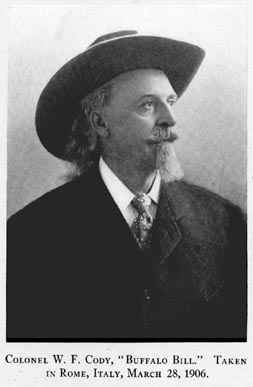[78]
THE MORRILLS AND REMINISCENCES

|
© 2002 for the NEGenWeb Project by Pam Rietsch, Ted & Carole Miller.
|
||||
NEGenWeb Project
Resource Center
On-Line Library
expressed opinions on all subjects. His judgment was sound on all questions. His friendship was always to be depended upon, and in fact, he was one of Nebraska's biggest and best citizens.
At the time of my first election there were four hundred students enrolled in University work; at the end of my twelve years' service there were nearly three thousand. The following named gentlemen served as members of the Board during my term of office:
Hon. Charles Weston, Hay Springs, Nebraska.
Hon. Henry D. Esterbrook, Omaha, Nebraska.
Hon. Charles W. Kaley, Red Cloud, Nebraska.
Hon. Charles H. Gere, Lincoln, Nebraska.
Hon. John Knight, Lees Park, Custer County, Nebraska.
Hon. Victor Rosewater, Omaha, Nebraska.
Hon. Wm. G. Whitmore, Valley, Nebraska.
Hon. J. B. Weston, Beatrice, Nebraska.
THE NEBRASKA STATE MUSEUM
Experience in northwestern Nebraska, as already narrated, aroused my interest in fossils, and in 1892 I became a patron of geology and paleontology in the University of Nebraska. For more than twenty years scientific expeditions, known as the Morrill Geological Expeditions, were sent out annually by the University to collect in Nebraska and adjoining states.
My work in connection with the Nebraska State Museum was not only interesting, but also very gratifying. My collection now fills two floors of the Museum
[75]
and has gained the reputation of being the largest and best collection of fossils in the middle west. By 1915 the Charles Henry Morrill collection contained almost one hundred and fifty thousand individual specimens of all kinds; many of these are rare, some are new, and have given to the Museum and to Professor Barbour a world-wide reputation. The greater part of this material was taken from the fossil fields in northwestern Nebraska. The best fields, to date, were discovered at Agate on the ranch of Captain James H. Cook and his son Mr. Harold J. Cook, about twenty-five miles from Crawford, Nebraska. The Morrill Geological Expedition of 1892 was the first to visit and collect in this remarkable spot. Captain Cook is entitled to great credit for offering the University of Nebraska and other Universities free access to this land, and for aiding in every way possible the expeditions sent from the University. Most of the new fossils collected on these expeditions have been figured and published in Volumes One, Two, Three, Four, and Seven of the Nebraska Geological Survey. I am a firm believer that every man who has the good fortune to accumulate more than he needs to give his family and himself the comforts of life, owes to his fellow men and to his community a debt that he should pay by contributing something for the future benefit of that community. In doing this while I am still alive, I have had the satisfaction of seeing for myself something of the good that was being accomplished. This has fully repaid me for whatever I have contributed to the cause of science
[76]
BUSINESS AND POLITICS
In the year 1894 I was chosen chairman of the Republican State Central committee. During the campaign William McKinley came to the State. I had the good fortune to make his acquaintance, and he invited me to accompany him to Kansas. We went to Wichita, where he was to speak. There we met Governor Edmund N. Morrill, who, at that time, was Governor of Kansas. As shown by the genealogy of the Morrills, he is a distant relative of mine. I was very much impressed with McKinley, and also with the speech he made. His clear voice reached the entire audience. Everyone was impressed with his sincerity, and his speech was very convincing to all who were fortunate enough to hear it. His argument on the tariff was to the effect that the prosperity of the American people, especially of the American laboring man, depended largely upon just and equitable tariff laws.
It was during this campaign that the first Populist Governor of Nebraska was elected. The drought and hard times had made the farmers dissatisfied. They seemed to be in the mood of "anything for a change." To add to the discomfiture of the Republicans, the Omaha Bee, a Republican paper of great influence in the State, refused to support Thomas Majors, the nominee of the Republicans for Governor. Silas Holcomb, the Populist nominee, was elected by a
[77]
majority of about ten thousand. All other nominees on the Republican ticket were elected. Among that number was Joseph Bartley, elected to the position of state treasurer.
During this campaign vicious attacks were made on the policy pursued by the railroads in Nebraska, especially on the custom then prevailing of granting an almost unlimited number of passes, not only to political friends but also to political enemies, hoping thereby to modify their aggressive acts towards the transportation companies.
In the latter part of 1894 I was chosen by the Nebraska Republican State Convention as a member of the Republican National Committee, for a term of four years.
In 1895 I was appointed receiver of the Nebraska Savings Bank. This bank had a capital of fifty thousand, and deposits amounting to about one hundred thousand dollars. The assets became nearly worthless through the shrinkage of values and because many borrowers left the State. In north Lincoln, a suburb, where the Savings Bank had made many loans, there were about two hundred houses and several business blocks, nearly all vacant. Windows and doors disappeared one by one, and much of the lumber was carried away. It was impossible to obtain tenants to occupy these buildings rent free. The owners of these houses, seeing that they were being destroyed, sold them for whatever they could get. Many houses costing from one thousand to fifteen hundred dollars